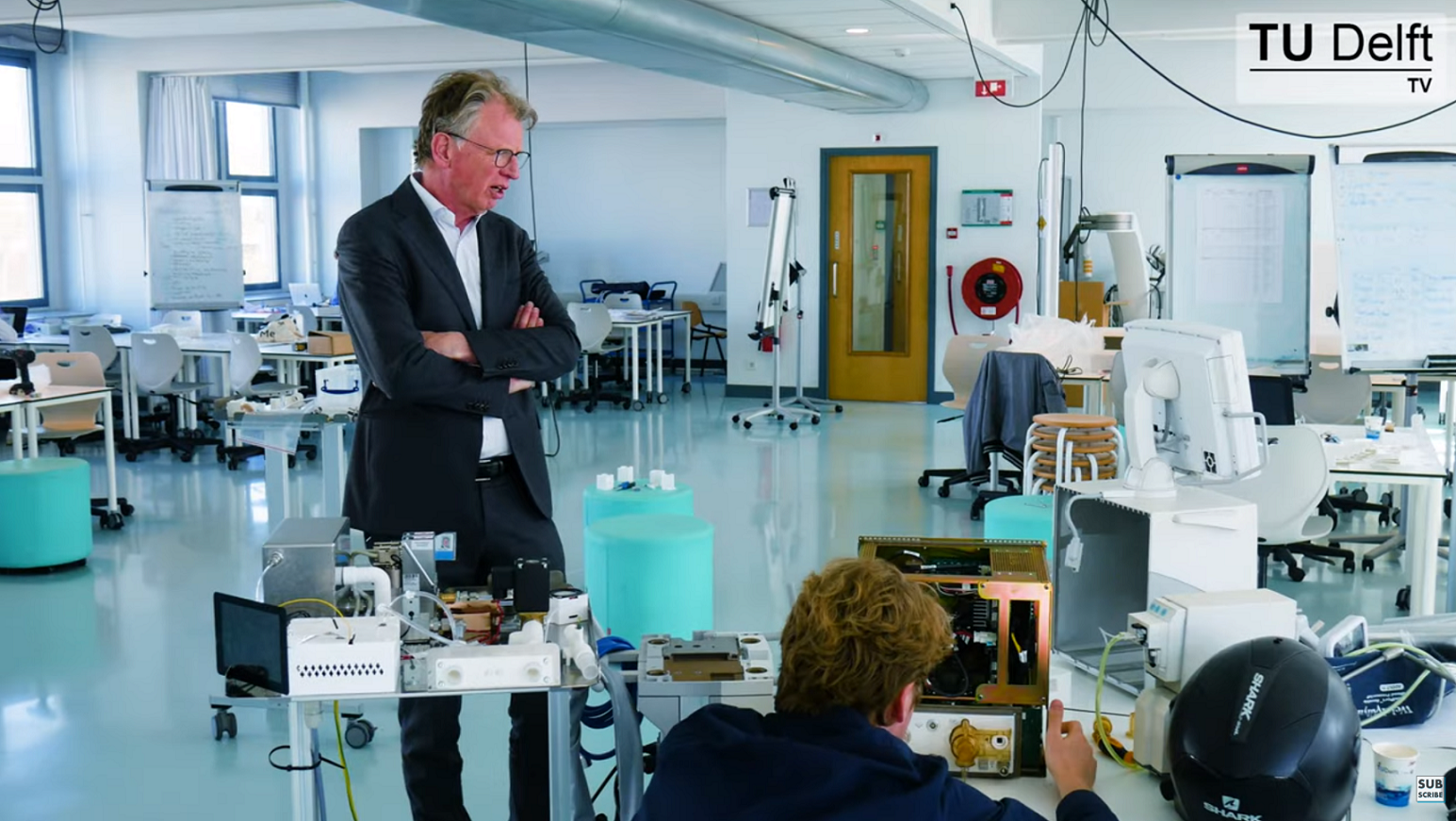During the Covid-19 outbreak, a major shortage of artificial respirators in Dutch intensive care units was a serious threat. At the same time, the hospital internships of many clinical technology master’s students were put on hold. Jaap Harlaar, Director of Education of the clinical technology programme, decided to solve both problems at once. Together with his students he designed and produced an emergency respirator, so doctors wouldn’t have to choose who would and who would not receive respiratory support.
Since the pressure on the ICUs has decreased, the devices will not be used. However, should there be another major outbreak, production of the emergency breathing devices can start immediately. In addition, the Operation Air team offers the project open source on its website and supports and advises similar initiatives abroad.
TU Delft TV visited Operation Air and asked team members Hubald Verzijl and Jeroen Roest how the device works and how it is produced.
TU Delft TV / TU Delft TV is a collaboration between Delta and the Science Centre. The crew consists of TU Delft students.



Comments are closed.